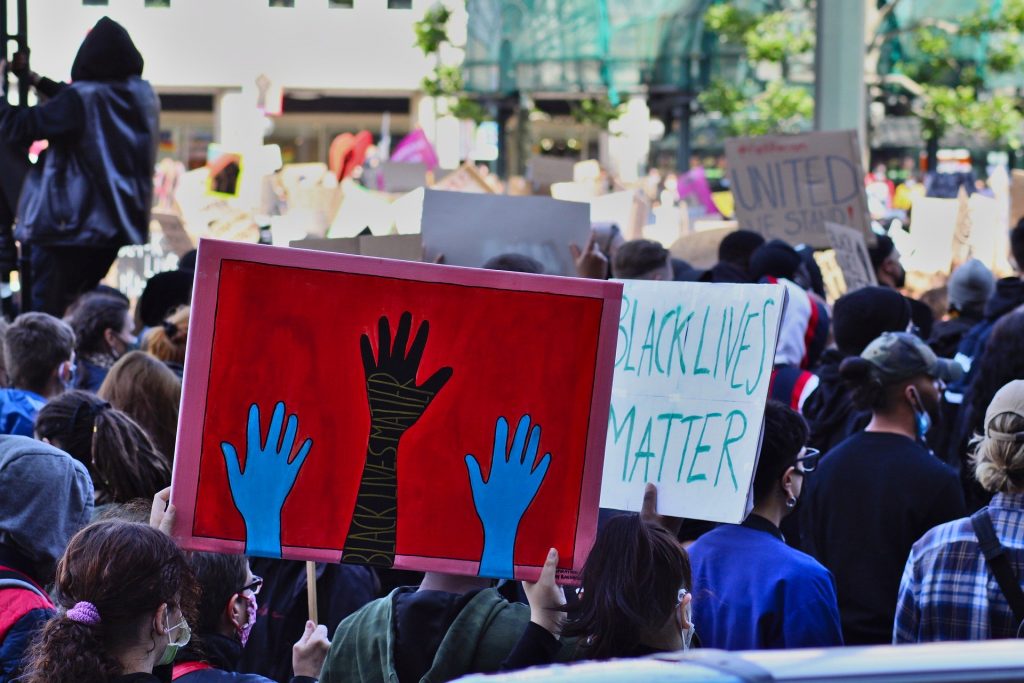
Emmanuel Abua is a writer and advocate from Atlanta who was diagnosed with autism at 27. Emmanuel is a contributor to Neuroclastic and writes on topics related to race and social justice as they relate to autism. This week he discussed his professional background and his fears and hopes for society as an Autistic black man.
Can you tell me a little bit about yourself? Where are you from? What do you do for a living? What are you passionate about?
I currently live in Dunwoody, Georgia. I’ve lived in Georgia for the majority of my life. I graduated from Dunwoody High School.
I currently work for a company called Ventures ATL. My company is a non-profit that does various business services such as data entry and order fulfillment to provide employment opportunities for people like myself on the spectrum. I have 3 years so far with the company.
I have panel and workshop experience with My Voice, My Board, My Participation and am a member of ASAN (Autistic Self-Advocacy Network). I’m also a graduate of the LEAP program at Eaton Academy.
I write for a collective called Neuroclastic. I’ve written a couple of articles and I started in December of last year.
I’m passionate about artwork, knowing random facts, video games, and reading. I love reading.
How did you first become aware of your autism diagnosis? Was it explained as something positive, negative, or neutral?
I was diagnosed as Autistic 7-8 years ago with Georgia Pediatric Psychology under Dr. Cohen and Dr. Fox. The diagnosis happened because I ran into a lot of trouble with personal issues in my own life socially, emotionally, and academically. At that point, I wasn’t aware that I was autistic. It was quite honestly the last diagnosis I expected to get.
The doctors who explained it to me were definitely positive. Just amazingly helpful and supportive. They went a long way towards helping me reach acceptance of my autism.
What kinds of microaggressions have you experienced (or experience on a regular basis)?
The one I get a lot is that people don’t expect that I’m autistic. There’s also the fact that in a lot of ways I don’t come across as a stereotypical autistic portrayed on television. Or that as an autistic adult I don’t understand the experience of an autistic kid.
Comment on society’s understanding/acceptance of you as an Autistic Black person. In other words, in what ways are you embraced in your community or society at large and in what ways are you misunderstood or ignored?
I think socially it is still hard for many to accept that an autistic can be a black person. In some ways society has moved forward in embracing this. Other ways, I still think we have a long way to go in just general acceptance. In my community, I have gotten lots of great support.
Given the situation going on right now, of course a great and constant concern of mine is having a bad confrontation with police, so a frustration of mine is that I have to put even more energy, effort, and conscious awareness into making sure that I quite honestly survive that confrontation.
Describe someone who is a good ally to the Autistic community (or for you, personally, as an Autistic person).
I don’t want to generalize my answers and come off acting like I can speak for all autistics. For me, just realizing every autistic individual is not the same, we all possess different needs, desires, wants, strengths, abilities and weaknesses. Sometimes we have good days and just not so good days. And the acknowledgement that abilities can be uneven and the ability to be open-minded and accepting about that goes a long way.
Describe someone who is a good ally to the Black community (or for you, personally, as a Black person).
Like the Autistic community, I truthfully can’t imagine speaking for what defines a good ally for everyone. To me, someone who understands and cares about who we are and how we have to operate in the world we live in is of course important. But concrete action to ease the inequality, racism, and frustration we experience regularly goes an even greater distance.
Do you have any good book or blog recommendations, people to follow on social media, or any other resources for individuals interested in supporting positive change for the Black Autistic community?
Neuroclastic has many writings from Black autistics such as myself who write on numerous topics and instances we experience. I recommend books by Alis Rowe–she writes a lot of books explaining how to function socially. The Twitter hashtag #BlackAutisticLivesMatter has a LOT of great people. @Allallistics is good too.
You can connect with Emmanuel on Twitter @thebluemaverick.
A full list to his Neuroclastic articles can be found here.
